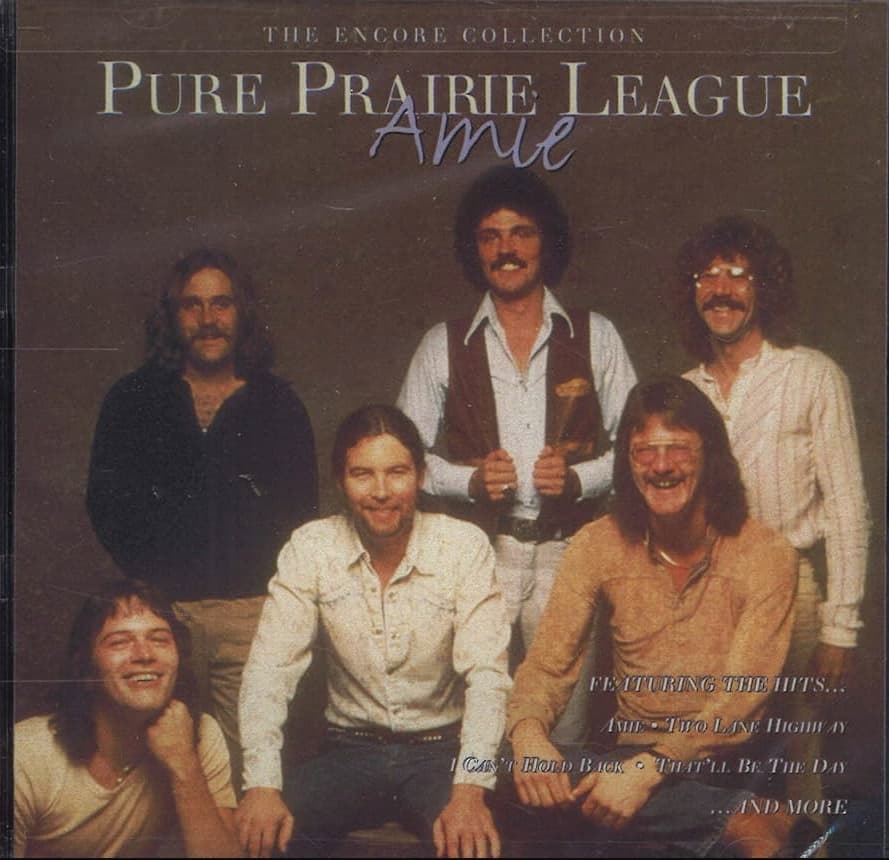
Pure Prairie League – “Amie”: A Sweet Southern Rock Classic of Longing and Love
Pure Prairie League’s “Amie” is a soft, heartfelt anthem that has come to represent the golden era of 1970s country rock. Released in 1975 on their album Bustin’ Out, this song didn’t initially achieve widespread success but eventually grew to be a beloved staple on American radio, especially among fans of soft rock and country-influenced sounds. It captures a bittersweet narrative of love and indecision, and its gentle melody, along with the distinctive guitar work and harmonies, has made it timeless.
Written by Craig Fuller, the band’s lead vocalist and songwriter, “Amie” tells the story of a man torn between his feelings of love and the instinct to move on. The lyrics are straightforward yet deeply relatable, beginning with “I can see why you think you belong to me.” This opening line hints at a relationship marked by uncertain boundaries and conflicting emotions, setting the stage for a tender but complex exploration of love. Fuller’s voice conveys vulnerability, a quiet longing that resonates with anyone who has ever faced doubt in a relationship.
Musically, “Amie” is a blend of folk, rock, and country—a fusion that became a defining sound for Pure Prairie League. The song features an unmistakable acoustic guitar riff, which serves as its anchor and gives it an organic, earthy feel. Fuller’s acoustic guitar introduces the melody with a delicate picking style that is both soothing and evocative, immediately drawing listeners in. The sound is enriched by smooth harmonies, particularly during the chorus, “Amie, what you wanna do? I think I could stay with you for a while, maybe longer if I do.” These harmonies add warmth to the track, making the song feel inviting and familiar.
The structure of “Amie” is also noteworthy for its simplicity and steady rhythm. The band didn’t clutter the arrangement, allowing each instrument to breathe, which emphasizes the sincerity of the lyrics. With each chorus, the song builds emotionally, adding subtle layers but never overshadowing Fuller’s raw vocals. This minimalistic approach gives the song an almost conversational quality, as if Fuller is sharing his thoughts with a close friend rather than performing for a crowd.
One of the most memorable aspects of “Amie” is its instrumental outro, which shifts into a vibrant guitar solo. This outro features a country-style acoustic picking that captures the soul of Southern rock and leaves a lasting impression. It’s the type of song that begs to be played on a warm evening with friends, with its irresistible rhythm and sing-along quality. This final instrumental section is almost a release from the emotional weight of the lyrics, giving listeners a sense of closure even if the protagonist’s heart remains conflicted.
In addition to its musical appeal, “Amie” also captures the universal experience of romantic uncertainty. The narrator’s struggle between his love for Amie and his instinct to maintain his independence resonates on a deep level. It’s a song about holding on while knowing you might have to let go—about realizing that love can be both fulfilling and complex. The lyrics refrain from making any definitive statement on love, leaving the story open-ended, much like real relationships that are filled with “maybes” and “what ifs.”
Although “Amie” didn’t climb the charts when it was first released, it eventually gained a strong following, becoming one of Pure Prairie League’s signature songs. Its enduring popularity has been attributed to its timeless quality and the emotional sincerity that Fuller and the band bring to the performance. Today, it’s frequently played on classic rock and country radio stations, a reminder of the beauty of simplicity in music.
For fans of 1970s rock and country, “Amie” offers a nostalgic trip back to a time when bands focused on crafting authentic, heartfelt music. Its success speaks to its universality: “Amie” is a song that bridges generational gaps, inviting listeners old and new to join in on its gentle journey through love and longing. Even decades after its release, “Amie” continues to capture hearts, reminding us that some songs—and some emotions—never truly fade.